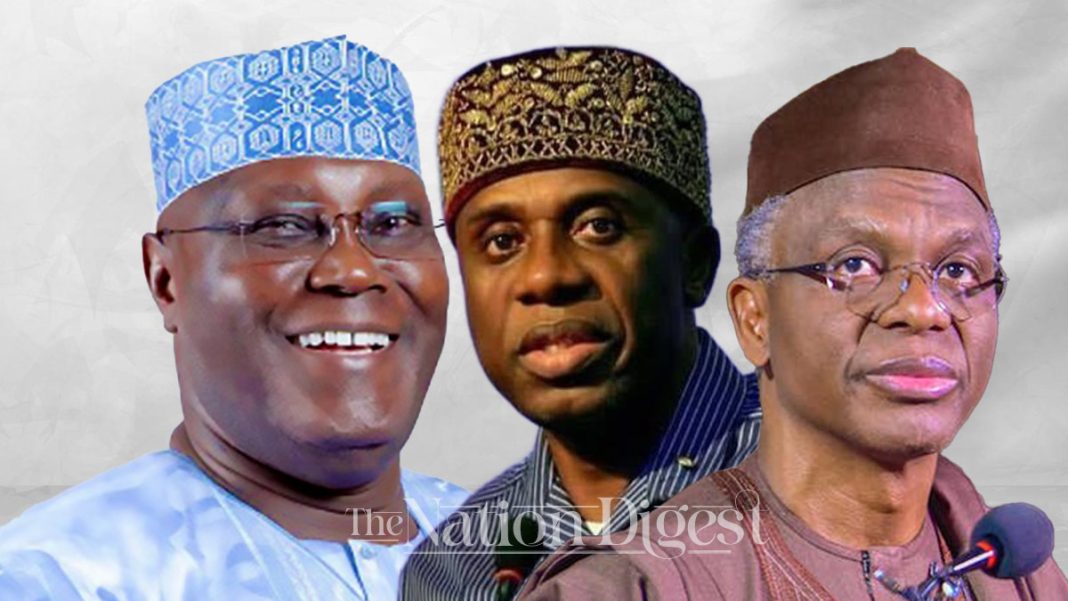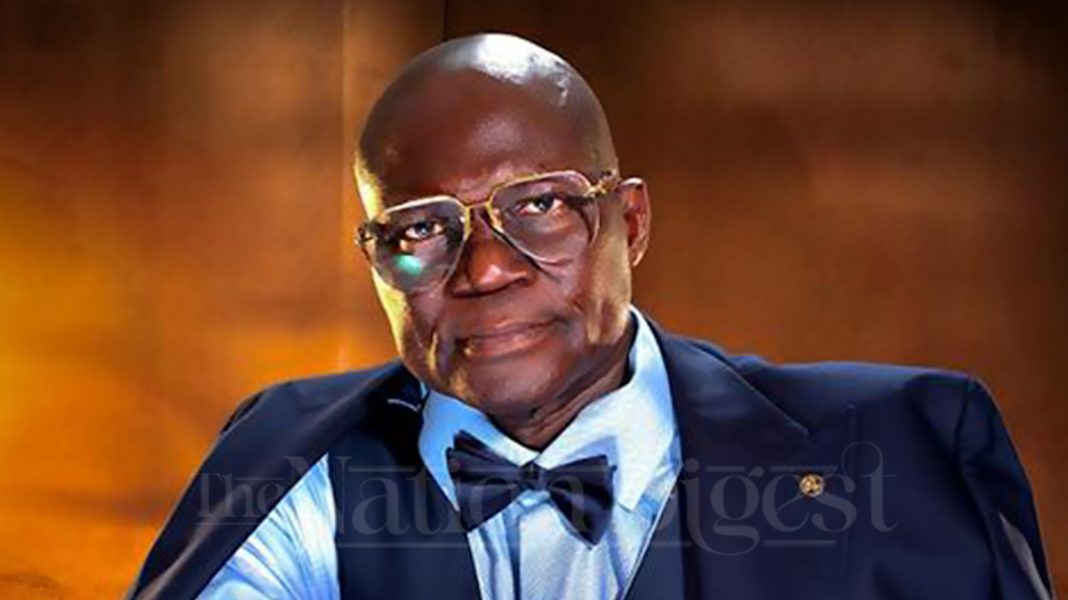The ruling All Progressives Congress (APC) has launched a sharp rebuke against former Vice President Atiku Abubakar, and former governors Rotimi Amaechi and Nasiru El-Rufai, describing them as desperate allies united in a quest for self-serving political power.
The trio recently leveled accusations against President Bola Ahmed Tinubu’s administration, alleging failure to address poverty in the past two years. Speaking during the 60th birthday celebration of Amaechi, who served as Minister of Transportation from 2015 to 2023, the opposition leaders claimed that poverty remains rampant under the APC government.
In a strong response, the APC dismissed these allegations as baseless and politically motivated attacks aimed at preserving an outdated system that once enriched these politicians at the expense of Nigerians. The party accused Atiku, Amaechi, and El-Rufai of masking their selfish ambitions behind hollow criticisms.
“By their desperate alliance, Atiku, Amaechi, and El-Rufai seek to cling to power and maintain a corrupt economic structure that President Tinubu’s reforms are dismantling,” the APC stated.

Read Also: Mokwa Flood Victims Blame Kainji Dam Water Release, Not Rainfall, for Over 150 Deaths
The party applauded President Tinubu’s decisive economic reforms designed to reduce poverty, encourage investment, and stimulate sustainable growth. Highlighted reforms include allowing market forces to determine the Naira’s value and removing fuel subsidies. These moves have ended widespread corruption, eliminated fuel shortages, and triggered increased investments in key sectors such as oil, gas, and agriculture.

According to the APC, entrepreneurs, farmers, and service providers are benefiting from new opportunities, while rent-seeking elites are losing their grip on the system. The party emphasized improvements such as rising minimum wages, increased local production, and a booming manufacturing sector, exemplified by the Dangote Refinery’s impact on the market.
The APC pointed to a 4.6 percent economic growth rate in the last quarter of 2024—the highest in a decade—despite global oil price declines. This growth, the party said, reflects the administration’s focus on economic diversification, entrepreneurship, and local production.
“This economic transformation is a testament to President Tinubu’s commitment to building a resilient economy that lifts Nigerians out of poverty,” the APC added.
Felix Morka, APC National Publicity Secretary, accused the trio of failing to tackle poverty during their combined 24 years in office. He described them as “leading displaced rent-seekers” whose opposition to reforms is driven by a desire to protect their personal interests.
Morka highlighted Amaechi’s long tenure as Speaker, Governor, and Minister, accusing him of benefiting from public resources without efforts to alleviate poverty in Rivers State or beyond.

The party assured Nigerians that President Tinubu remains focused on the nation’s welfare and will not be distracted by “selfish partisan ramblings” aimed at preserving a system that enriched a few at the expense of the many.
The Atiku, Amaechi, El-Rufai 2027 Coalition
As Nigeria inches closer to the 2027 general election, behind-the-scenes political maneuverings are already taking shape — and a possible coalition between Rotimi Amaechi, Atiku Abubakar, and Nasir El-Rufai is stirring serious interest.
Sources close to the key players suggest preliminary discussions are ongoing, with power-sharing dynamics and regional influence high on the agenda. While none of the three men has made a formal declaration, insiders say the alliance is being positioned as a “strategic third force” that could disrupt traditional party strongholds.
Rotimi Amaechi, the former Minister of Transportation and APC chieftain, is reportedly aligning with other dissatisfied political elites who feel sidelined in the post-2023 dispensation. Atiku, the PDP presidential flagbearer in the last election, remains a heavyweight with grassroots structures nationwide. Meanwhile, El-Rufai, the ex-Kaduna governor known for his sharp political instincts, is said to be playing a “bridge-builder” role in the unfolding discussions.
While the coalition remains unofficial, analysts believe it could significantly shift the 2027 political map — especially if the group can rally support across Nigeria’s north-south divide.
So far, none of the camps has confirmed or denied the talks, but the silence is fueling even more speculation. As one political observer put it: “When these kinds of names begin to meet, something serious is brewing.”




